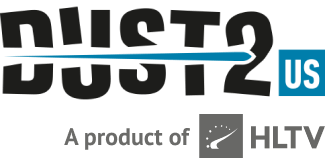
Agents in esports, understanding their role
Asgeir Kvalvik co-founded ULTI Agency alongside Frank Berget in 2020 after transitioning away from the top football club they worked together at in Norway. Working as head of media & sponsorships for the club, Kvalvik's time in football established his connection to agency work, before ultimately combining this with his passion, gaming, with Kvalvik mainly indulging in Counter-Strike under the tag "Ashy".
ULTI has gone on to become one of the largest and most recognized agencies in esports, with roughly fifty clients under the Scandinavian banner as of now, three full-time agents, a lawyer, and a social media manager being employed. The role of a player agent is a well-documented position in traditional sports. Films such as Jerry Maguire depict a profession filled with dishonesty that the titular character played by Tom Cruise sets about changing, while Mino Raiola made headlines throughout as the "super agent" in the football world prior to his passing in 2022. So when it comes to esports, what's different when it comes to player representation?

According to Ashy, the main priority when it comes to the day-to-day running of the agency is regular contact with clients. The general basis that ULTI has set is that the agents aim to keep a regular dialogue with their clients, contacting them at a minimum once a week, with some players even having daily dialogues. When it comes to the baseline duties of an agent, there are a lot of similarities that can be found with their counterparts in traditional sport such as this regular contact with clients, negotiating contracts and seeking opportunities for players.
Through their contact with clients, the agent sets about finding opportunities for them such as searching for new teams, helping them figure out the practical matters involved with moving into new teams such as visas or taxes, or even the process of moving from one country to another. Being a general support system for the client with whatever they need on that front seems to be the overarching goal of ULTI, with their services going beyond just helping the player find a team and taking a cut of the transfer fee.
One extraordinary example of this occurred with the transfer of Gambit's CS:GO lineup to Cloud9 back in April 2022. Following the outbreak of conflict in Ukraine as a result of Russia's invasion, Gambit was embroiled in economic sanctions as a result of their ownership's ties to Russian oligarchs. Facilitating the move, ULTI managed to broker a deal with American juggernaut Cloud9 who signed the team and were relocated by the agency who also helped the players acquire Schengen Visas.
Gambit was looking to exit esports and wanted to find a buyer. Kimi (an ULTI Agent) had a good relationship with their CEO, we had a discussion internally and found out that we wanted to help these players find a new banner. We had a discussion with around four teams that were interested but Cloud9 decided to go forward with it in the end. That's not a thing we do every day but it was a cool opportunity so it was a good deal for everyone involved.
When it comes to the contract negotiation itself the agents, including Ashy, have no legal background whatsoever, but ULTI employs one lawyer who deals with the contracts. According to the CEO, over the two and a half years of working in the agency business, he has learned that many of the contracts are the same, which makes it easy to find which clauses you need to remove.
Regarding the fee that the agent collects from the players, it differs from agency to agency, but ULTI follows the European football model. Practically speaking, this means that the agency receives a 10% cut of the value of a contract negotiated on behalf of a player. Ashy provided an example of how this works in practice with Håkon "hallzerk" Fjærli, who ULTI signed while he was under contract at Dignitas.

Since hallzerk was with a team when he joined the agency, there was no up front free when the Norwegian was left teamless after Dignitas disbanded, but ULTI orchestrated his move to Complexity in July 2022 they recieved 10% of the combined contract value salary-wise and other expenses.
Even with the 10% of the contract value going to the agent, it's not coming directly from the player's pocket. The fee comes from the organization that is buying the player, generally in the form of extra salary negotiated in the contract. As well as the 10% procured when signing with a team, ULTI also collects a 20% cut from sponsorship opportunities presented to the client.
When it comes to the process of transferring a player from one organization to another, there are a number of different ways in which a deal can be initiated. In some cases, the decision-makers in the organization will be proactive and go out to do their own scouting, approaching the agent if their client is the desired target. Other times, it can be a case where the agent has to be the active party, showing prospective organizations presentations of their client in order to open their eyes to the prospect of signing them.
Having an open dialogue with key figures in organizations is just as important to an agent as having an open dialogue with their clients. Ashy explained that last year they toured the United States and South America to visit organizations and their owners in order to meet the decision-makers and the sports directors, while also stating that they are planning an Asian tour since they have players there. The people who make the decisions in organizations are just as integral to the process as the players, meaning that it's important to have a strong working relationship with these people in order to be a successful agent.
Inevitably, there will always be disagreements and arguments between organizations and agents. In years gone by, there have been esports organizations that won't even acknowledge that a player has an agent, which to Ashy expressed that he felt it showed a sincere lack of maturity in the esports system. This hard exterior to agents from organizations could be softened through regulation of the field in a similar way to traditional sports. For example, FIFA requires that in order to become a Licensed Players' Agent you must pass an examination based on FIFA rules and regulations.
Player agency in esports is incredibly important considering how young the industry is in relation to traditional sports. Players in our industry are much younger on average, with numerous top players in Counter-Strike having yet to graduate from their teenage years. For this reason, it is useful to have agencies there to guide them and take away some of the burden that comes with the journey of professional play.
On the other hand, it can be a double-edged sword. Not all agencies may have the player's best interest at heart, taking advantage of the player's naivety in the same way that a prospective organization might if the player didn't have a good agent at their back. That is why it is integral to get an understanding of exactly what it is that an agency can provide for esports players.
























